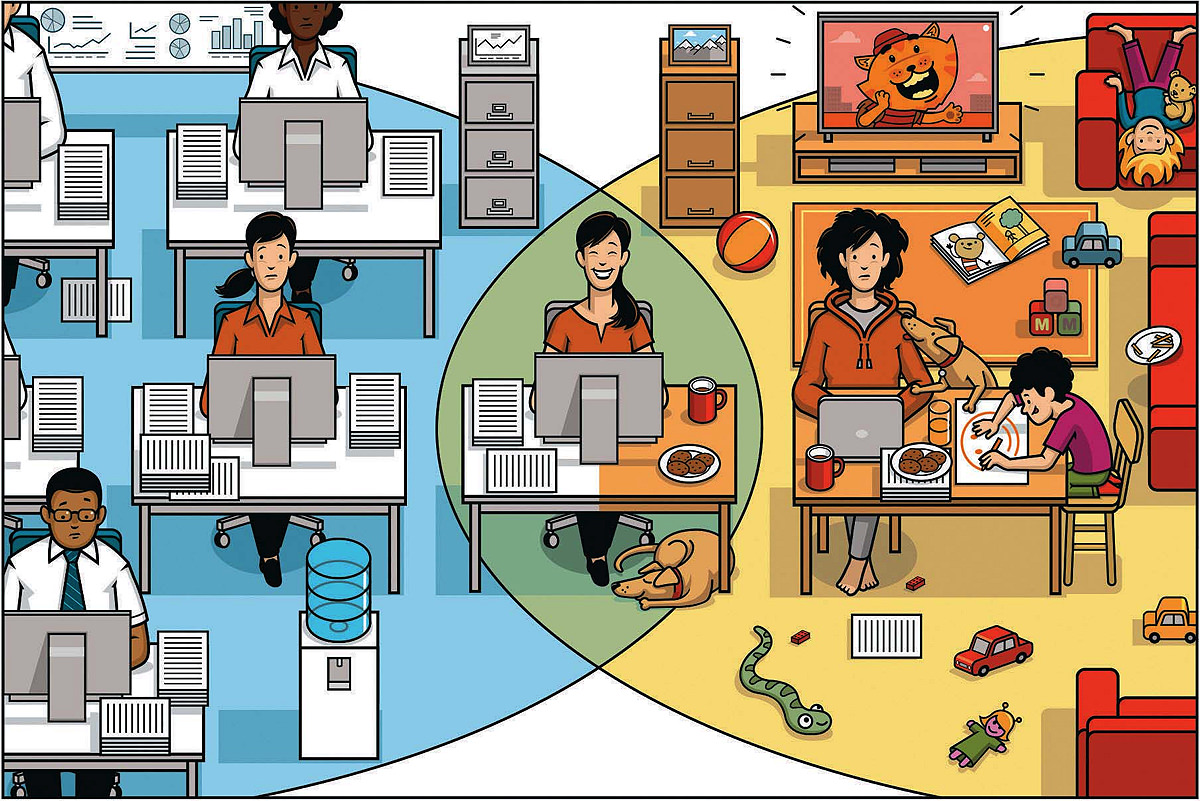Boosting Productivity: HP Rolls Out Strategy to Lead in Hybrid Work 2023

Boosting Productivity: HP Rolls Out Strategy to Lead in Hybrid Work 2023
The hybrid work paradigm has quickly become popular among firms as a flexible and effective business method. Though successful, many firms are still figuring out how to adopt this work arrangement.
The hybrid work paradigm has quickly become popular among firms as a flexible and effective business method. Though successful, many firms are still figuring out how to adopt this work arrangement.

In India, 92% of employees say hybrid work enhances work-life balance, but it needs improved tools and tech training, according to an HP study. India is now a country where a mixed work style is prevalent.
However, the existing hybrid work paradigm is hurting employee productivity and well-being due to a lack of IT and technology infrastructure at the office and distant locations, according to Vickram Bedi, senior director (Personal Systems), HP India.
HP has launched various hybrid work solutions for smooth operations everywhere, at any time, in recognition of the opportunity to fill the gaps. In Bedi’s opinion, the recently released HP Dragonfly G4 laptop is a game-changer for today’s mobile workers. The Dragonfly G4 uses cutting-edge capabilities to alleviate the difficulties of virtual communications as online meetings become the norm.
It is the first business laptop in the world to support using two cameras simultaneously, enabling experts to handle two video streams and give more powerful presentations. Additionally, it has AI-based Noise Reduction, which reduces background noise for clear voice during video chats.

In a recent interview with FE, Bedi stated, “We embrace the hybrid work model entirely and recognize that, if properly implemented, it can be a driver for long-term corporate growth and success. Employers are now the centre of attention in the post-pandemic environment. Therefore, businesses must design their strategies with their workforce in mind.
According to an HP Global study, employees’ poor technology experiences are a significant deterrent to returning to the workplace. Only 8% of the 90 million conference rooms worldwide have video capabilities. Therefore, according to Bedi, we underline the value of investing in technological infrastructure that is prepared for the future and facilitates efficient communication between remote and in-office personnel.
This entails making various video conferencing solutions available to users and ensuring organizations have more collaborative meeting spaces. We acknowledge the extra effort of remote and hybrid workplaces on IT departments and advise equipping them with the tools necessary to guarantee workers’ efficiency, security, and cooperation when working from different locations.
Last, we support giving all workers, especially entry-level ones, access to technology to close the technology gap and promote creativity and productivity in a diverse workplace.
To satisfy the changing demands of hybrid work environments, HP has been at the forefront of adapting the design of its products and services.

“We have benefited from the hybrid work trend by investing in complete technological solutions designed for these settings. He added that the strategic purchase of Poly strengthens our position as a pioneer in offering cutting-edge hybrid work solutions.
WORKPLACE NORMS
- Hybrid work models are seen as a catalyst for business growth and success
- Sub-optimal tech hampers workers’ return-to-office
- Video meetings essential in hybrid work models
- 92% say mixed work needs better tools & tech training
- Less than 8% of 90 million conference rooms are video-enabled
The year 2023 is proving to be a watershed moment for the future of work. As organizations globally lean into hybrid work models, technology companies are racing to offer solutions tailored to this new era. Among the leading names making a mark is HP, known for its history of innovation. This article sheds light on HP’s ambitious strategy to boost productivity for the hybrid work paradigm.
Before delving into HP’s strategy, it’s essential to understand the hybrid work model’s significance. A blend of remote and in-office work, this model offers flexibility to employees while ensuring business continuity. Companies are realizing that the future of work is not a one-size-fits-all approach but a balance tailored to individual and organizational needs.

HP’s overarching goal is to integrate home and office environments seamlessly. Their latest products and services focus on the following areas:
- Device Mobility: HP is investing in lightweight, high-performance devices with longer battery lives because employees might shuttle between various work locations.
- Unified Digital Ecosystem: A suite of tools and software that ensure a consistent user experience irrespective of where an employee logs in from, be it their home, a café, or the office.
- Advanced Security Features: With cyber threats rising, HP is doubling on device and data security. Their latest releases include enhanced encryption, biometric authentication, and secure boot processes.
Recognizing the critical role of collaboration in the hybrid model, HP is partnering with leading software providers to offer pre-installed collaboration suites. These tools make virtual meetings, document sharing, and real-time collaboration as intuitive as face-to-face interactions.
HP realizes that a generic solution will only cater to some industries. Therefore, it’s rolling out industry-specific tech solutions. From design-oriented devices for creatives to rugged devices for field workers, HP ensures every professional has tools tailored to their needs.

Transitioning to a hybrid work model is about having the right tools and knowing how to use them effectively. HP is introducing a series of webinars, workshops, and training modules for employees and IT departments, ensuring that businesses can extract maximum value from their tech investments.
In line with global trends, HP’s strategy also embeds sustainability. Their latest devices are energy-efficient, made with recycled materials, and designed for longevity, reducing e-waste.
HP is positioning itself as a partner rather than just a vendor. To this end, they’ve set up feedback loops with organizations to understand the real-world challenges of hybrid work. This feedback will guide future product and service enhancements.
HP’s strategy for 2023 is both ambitious and necessary. As businesses navigate the complexities of the hybrid work model, having a trusted tech partner will be paramount. With its century-long legacy of innovation.

HP seems poised to lead this new phase of work evolution. Only time will tell if their strategy translates into market dominance, but initial indicators suggest a positive trajectory.




